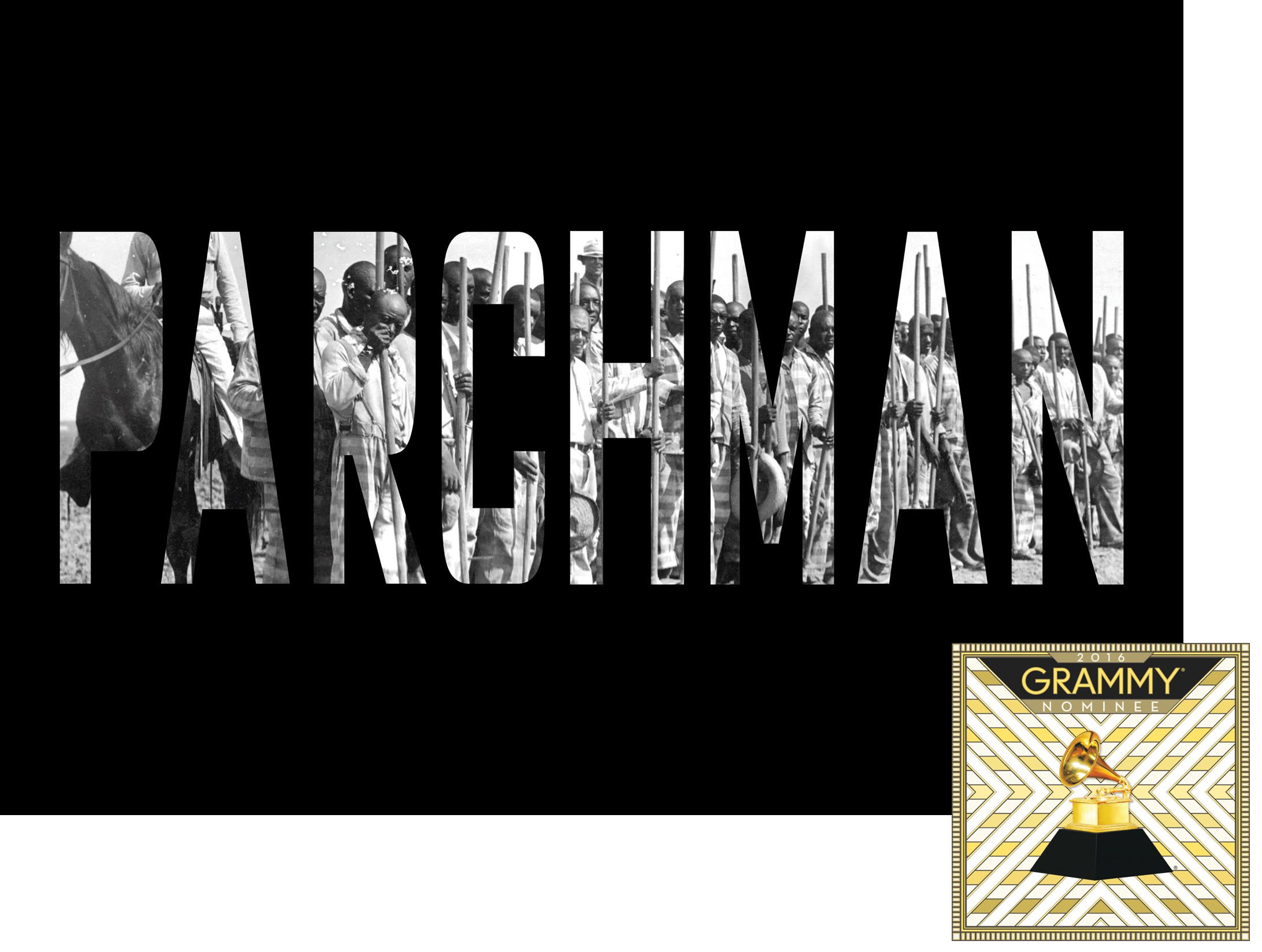Roads and Kingdoms recently posted an adapted excerpt taken from the liner notes of Ostinato Records' outstanding debut release: Tanbou Toujou Lou: Meringue, Kompa Kreyol, Vodou Jazz, and Electric Folklore from Haiti 1960-1981. There are some great photos and sound clips in the article. I'm happy to say that all the tracks were transferred, restored and mastered here at Osiris Studio and I enjoyed every minute of it.
Winfield Parker at Ru-Jac
Ru-Jac Records, one of the nation’s first African-American owned record labels, was formed in Baltimore in the early 1960s by Rufus Mitchell, who booked east coast entertainment venues including Carr’s Beach, a segregated summer resort near Annapolis. Ru-Jac was active through the beginning of the 1970s and featured R&B, jazz and even rock acts. One of the most soulful was Winfield Parker.
Release date: March 25, 2016
Michael Graves in the News
I was recently featured on two Atlanta TV stations. The first one comes from Andi Larner at FOX5 Atlanta and focuses on some of the recent restoration and mastering projects I've worked on.
The second clip is from CBS46 and highlights the GRAMMY nominated Parchman Farm set from Dust-to-Digital, and a recent haircut.
2016 GRAMMY Awards
The 58th GRAMMYs are over with and while we didn't take home any awards this year it's still an amazing honor to be recognized by our peers on this scale and I'm incredibly proud of the work I get to do with Dust-to-Digital on a regular basis. Congrats to all the nominees in the Best Historical Album category and especially everyone involved with Bob Dylan's, The Basement Tapes Complete: The Bootleg Series Vol. 11 that ultimately won this year's GRAMMY.
GRAMMY nominated Parchman Farm in the news
Atlanta's NBC affiliate, 11 Alive, recently aired a segment highlighting the excellent work going on at Dust-to-Digital; specifically the Parchman Farm box set.
Michael Graves receives 6th GRAMMY nomination
Very happy and honored to announce that Dust-to-Digital's Parchman Farm: Photographs And Field Recordings, 1947–1959 has been nominated for a Best Historical Album GRAMMY! Michael Graves (mastering engineer), Steven Lance Ledbetter and Nathan Salsburg (compilation producers) all share the nomination. The 58th GRAMMY Awards will be held at 1:00 PM, February 15, 2016 in Los Angeles, CA. Thank you Recording Academy for recognizing this project!
Before and After #1: Mancini and Mercer - Moon River demo
I've decided to start a new "before and after" series. I get recordings on a regular basis that need help and thought it might be fun to share what some of them sounded like originally.
Let's get right to it.
- TITLE: Moon River (1962 demo)
- PERFORMERS: Henry Mancini (piano) and Johnny Mercer (vocal)
- SOURCE: Aluminum core lacquer grooved disc (or acetate), 45 rpm
- RELEASE: Oxford American Magazine, Georgia Music Issue, Winter 2015
*Earbuds or headphones work best for this.
First off, let's just acknowledge how awesome this is. As far as performers and songs go it doesn't get more iconic than this. In addition to being a beautiful song, Moon River helped put Johnny Mercer back on the map after a long dry spell and ended up earning both Mercer and Mancini an Academy Award in 1962.
This is the unreleased demo for that song!
The recording was sent to me to be restored and mastered for the CD that would accompany the upcoming Oxford American Georgia Music Issue. The audio that I received to work from was the "before" version I posted above; already digitized using a very nice turntable and stylus. I've written about this scenario before; I could hear that the stylus that was used wasn't appropriate for this type of record. Digital restoration is much more effective if you get a good transfer. I asked Chris Mancini, Henry Mancini's son and the owner of the record, if he wouldn't mind sending me the acetate so I could give it a go here. He agreed and the next day it was taking a ride on my turntable with a more suitable stylus.
Celebrating Ola Belle Reed at the Library of Congress
L-R: TJ Lundy, Ryan Paisley, Michael Paisley (bass fiddle, hidden), Danny Paisley, David Reed, Hugh Campbell
Library of Congress steps, Washington, D.C.
Last week was pretty fantastic. I spent Wednesday and Thursday at the Library of Congress celebrating the release of a project that I did the restoration and mastering for: Dust to Digital's "Ola Belle Reed - Southern Mountain Music on the Mason-Dixon Line". Wednesday started out with an afternoon concert in the historic Coolidge Auditorium (where Alan Lomax recorded Jelly Roll Morton in 1938). The band consisted of Reed’s son Dave Reed, her nephew Hugh Campbell, and members of the acclaimed bluegrass band Danny Paisley and Southern Grass. They nailed it. It was an hour of outstanding bluegrass in an amazing venue.
L-R: Betsy Peterson, Hugh Campbell, Henry Glassie, Clifford R. Murphy, Douglas Peach, and Lance Ledbetter
The next day we were treated to two engaging panel discussions. The first one focused on Olla Belle Reed's musical legacy and the Appalachian Migration and featured Frances Mann Riale, Danny Paisley, David Reed, Del McCoury, Ronnie McCoury and Rob McCoury. The second panel was all about Dust-to-Digital's new CD/book. Henry Glassie, Clifford R. Murphy, Douglas Peach, and Lance Ledbetter took the stage to talk about how "Ola Belle Reed - Southern Mountain Music on the Mason-Dixon Line" came to be. Both panels were great and throughly enjoyable.
Why is Olla Belle Reed important? Douglas Peach says it well in his guest post on the LOC blog:
Ola Belle Reed’s influence permeates both traditional and, increasingly, popular music in the United States. Her songs have appeared on albums by Marty Stuart, Tim O’Brien, and Del McCoury, and have inspired contemporary performers such as the Avett Brothers and Abigail Washburn. Her contributions were recognized in 1986, when she was awarded the National Heritage Fellowship–the nation’s highest honor for traditional artists–by the National Endowment for the Arts.
Folksongs of Another America: Field Recordings from the Upper Midwest, 1937-1946
Dust-to-Digital's new 5-CD set of field recordings, all meticulously restored and mastered by Michael Graves, is teeming with African-American, Austrian, Belgian, Cornish, Croatian, Czech, Danish, Dutch, Finnish, French Canadian, German, Ho-Chunk, Icelandic, Lithuanian, Irish, Italian, Luxemburger, Norwegian, Ojibwe, Oneida, Polish, Scots Gaelic, Serbian, Swedish, Swiss, and Welsh performers.
Armed with bulky microphones, blank disks, spare needles, and cumbersome disk-cutting machines, several folklorists had the foresight to document and preserve a significant but overlooked part of the nation’s musical heritage, made by immigrant, Native American, rural and working-class performers. Almost all of these dance tunes, ballads, lyric songs, hymns, laments, versified taunts, political anthems, street cries, and recitations are being issued for the very first time.
Dr. John's '60s, '70s Atco/Atlantic singles compilation
Being mastered right here, right now.










